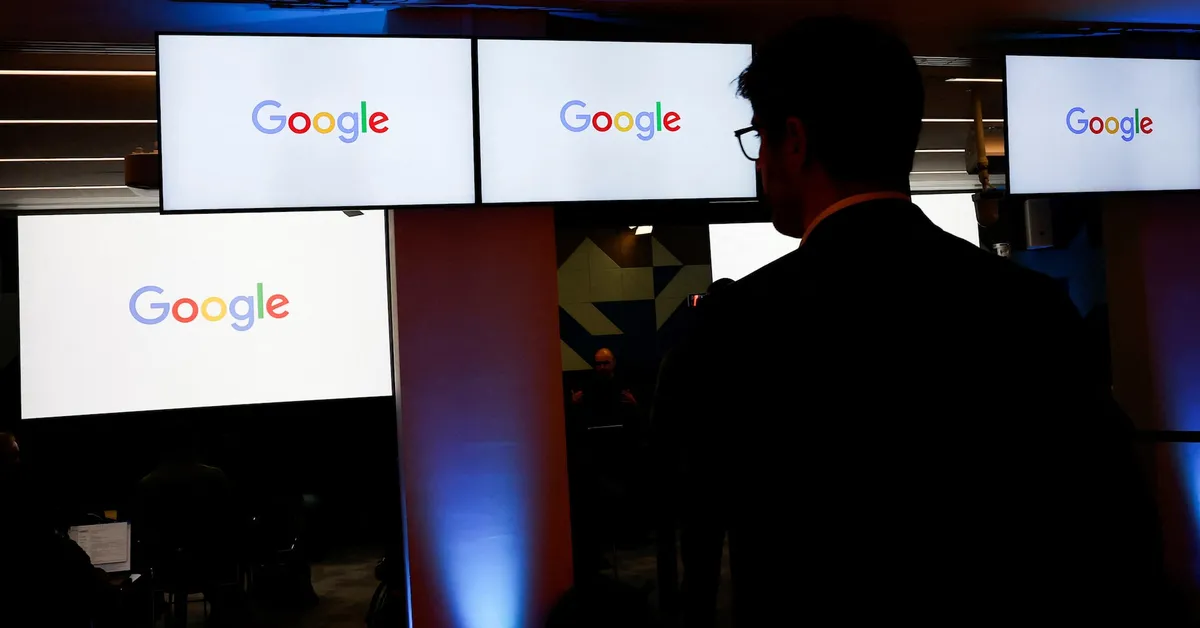
As America's tech titans prepare to report their earnings this week, a critical question arises: is the artificial intelligence boom that has inflated valuations on the verge of becoming the next big bubble? Business leaders, including OpenAI CEO Sam Altman, Amazon.com founder Jeff Bezos, and Goldman Sachs CEO David Solomon, have cautioned that the current frenzy in tech stocks may have outpaced the underlying fundamentals.
Investors, feeling uneasy about the exuberance in the tech sector yet hesitant to bet against it, are beginning to shift their focus away from overhyped stocks. They are employing strategies reminiscent of the dotcom era to mitigate potential risks associated with an AI bubble.
The four tech giants, along with other major cloud firms, are anticipated to invest approximately $400 billion in AI infrastructure this year. However, the returns for businesses that adopt this technology remain uncertain. This uncertainty could pose a significant threat to the ongoing rally fueled by AI, which has seen the market value of Big Tech companies surge by about $6 trillion since the debut of ChatGPT in November 2022. Some economists argue that the broader U.S. economy has been supported by AI spending, compensating for the negative impact of Trump-administration tariffs.
Debt is increasingly influencing how Big Tech finances its AI infrastructure investments, marking a departure from previous investment cycles. For example, Meta recently secured a $27 billion financing deal with private-credit firm Blue Owl Capital for its largest data center. When companies are both funding and depending on one another, their decisions may shift from being driven by real demand and performance to merely reinforcing optimistic growth expectations. Ahmed Banafa, an engineering professor at San Jose State University, warns that while these deals may not be problematic in isolation, becoming commonplace can heighten systemic risks.
Despite the concerns, some investors believe that genuine value is emerging beneath the surface of the tech frenzy. They point to double-digit revenue growth and robust cash flows that are keeping the balance sheets of Big Tech companies healthy. Eric Schiffer, CEO of the Los Angeles-based investment firm Patriarch Organization, which holds shares in all the Magnificent Seven companies, states, "Adoption may be low right now, but that's not a forward indicator. With greater spending and innovation in these models, adoption is going to grow." Schiffer is optimistic that we are not yet in a bubble stage.
In the upcoming earnings reports for the July-September quarter, the cloud-computing units of Amazon, Microsoft, and Google are all expected to showcase strong growth, despite facing capacity constraints that limit their ability to meet AI demand. These companies are likely to reaffirm their capital spending plans as well. According to Visible Alpha data, Microsoft Azure revenue is projected to rise by 38.4%, surpassing the expected growth of 30.1% for Google Cloud and 18% for Amazon Web Services (AWS).
AWS, while still the largest player in the cloud computing market, has fallen behind Microsoft, which has gained from its partnership with OpenAI, and Google, whose AI models have gained traction among startups. A recent AWS outage that disrupted several popular applications has drawn additional scrutiny. Overall, Microsoft is expected to report revenue growth of 14.9%, while Alphabet is likely to see a 13.2% increase. Amazon and Meta are forecasted to deliver revenue growth of 11.9% and 21.7% respectively. However, profit growth for these companies is expected to slow, as costs rise, with all but Microsoft anticipated to post their weakest profit increases in the last ten quarters.
Microsoft, Alphabet, and Meta are scheduled to report their results on Wednesday, followed by Amazon on Thursday. The outcomes of these reports will likely provide further insights into the sustainability of the current AI boom and the overall health of the tech sector.